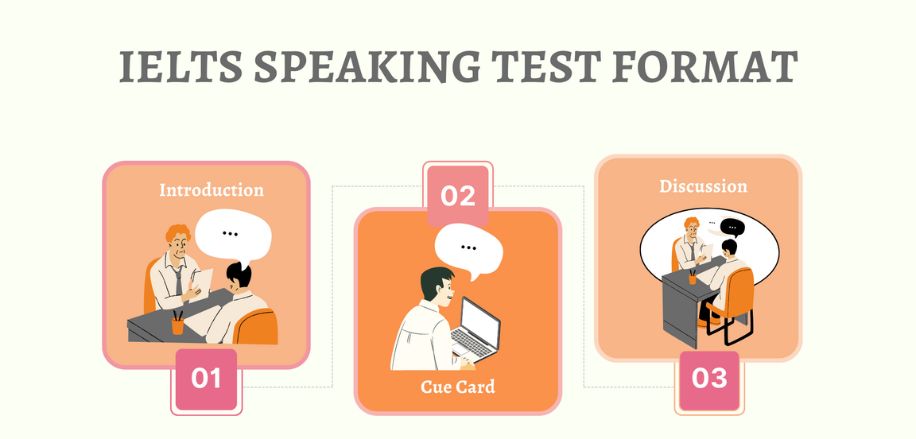
IELTS Speaking Test: Describe a Law on Environmental Protection
The IELTS Speaking Test assesses a candidate’s ability to effectively articulate and communicate their ideas in English. Within this test, candidates are often presented with cue card topics that require them to discuss relevant and pressing issues. In this blog, we will provide a comprehensive guide on how to effectively respond to the cue card topic, “Describe a Law on Environmental Protection”. We will explore how to approach and formulate an answer on the topic, emphasising the significance of environmental legislation and supporting the explanations with real-life examples.

IELTS Speaking Test Format:
The IELTS speaking test consists of three sections:
- Introduction and interview-style questions
- The cue card topic
- Follow-up questions

Understanding the Cue Card:
A cue card in IELTS Exam is a topic on which you speak for two minutes. The examiner will then ask you some follow-up questions about your speech. You will be given 1 minute to understand the topic and structure your thoughts before you speak.
The IELTS cue card topic “Describe a Law on Environmental Protection” invites you to discuss a specific law that aims to safeguard the environment, reduce pollution, or promote sustainable practices. You may demonstrate your knowledge of environmental issues, the role of legislation in addressing them, and your ability to articulate your thoughts effectively.
Selecting a Relevant Environmental Law:
Choose a law that has significantly impacted environmental protection in your country or globally. It could be a law addressing air or water pollution, wildlife conservation, renewable energy, waste management, or climate change mitigation. Select a well-known law that has made a tangible difference in safeguarding the environment.
Outlining the Structure:
Organise your thoughts logically to construct a well-articulated and comprehensive speech. You can speak around 200-250 words in 2 minutes. Choose your points wisely.
Choosing the Correct Language and Vocabulary:
Use good vocabulary and descriptive language to convey your ideas, but make sure the context is understood and your vocabulary is correct. Include environmental terminology, scientific concepts, and policy-related terms to demonstrate your understanding of the subject matter.
Here is a basic outline you can use to answer the IELTS cue card question on describing a law on environmental protection:
1. Introduction:
- Introduce the law, providing its official title, the governing body responsible for its implementation, and the date it was enacted.
- Highlight its significance in addressing environmental concerns.
2. Objectives and Scope:
- Discuss the main objectives and scope of the law.
- Explain the specific environmental issues it aims to address and the goals it intends to achieve.
- For example, if discussing a law on air pollution, you may highlight its aim to reduce emissions from industrial sources or promote clean energy alternatives.
3. Key Provisions and Measures:
- Describe the key provisions and measures outlined in the law.
- Discuss any regulatory frameworks, penalties, or incentives established to ensure compliance.
- Highlight innovative approaches or initiatives introduced by the law to tackle environmental challenges effectively.
4. Impact and Success Stories:
- Explain the impact the law has had on the environment and society.
- Provide examples of successful implementation, such as reduced pollution levels, habitat restoration, or increased adoption of sustainable practices.
- Share statistics or case studies that highlight positive outcomes resulting from the law.
5. Challenges and Future Outlook:
- Acknowledge any challenges or criticisms the law may face.
- Discuss ongoing efforts to overcome these challenges and improve the law’s effectiveness.
- Explore potential developments or amendments that may strengthen the law and address emerging environmental issues.
You may go through the example below to better understand how to answer this IELTS cue card question.
Example: Describe a law on environmental protection
One exemplary law on environmental protection that has made a significant impact is the “Plastic Waste Management and Reduction Act” implemented in my country. Enacted in 2019 by the Ministry of Environment, this law addresses the growing concern of plastic pollution and aims to regulate the production, use, and disposal of plastic materials.
The Plastic Waste Management and Reduction Act has several objectives, including reducing plastic waste generation, promoting recycling and reuse, and encouraging the adoption of eco-friendly alternatives. The law establishes a comprehensive framework for managing plastic waste across industries, households, and public spaces.
One of the key provisions of this law is the ban on single-use plastic items such as plastic bags, straws, and cutlery. It mandates the use of biodegradable alternatives and encourages the adoption of reusable options. Furthermore, the law promotes extended producer responsibility, making manufacturers accountable for collecting and properly disposing of their plastic products.
The impact of this law has been significant. Local communities and businesses have embraced the use of reusable bags and containers, contributing to a decrease in plastic consumption. Recycling facilities have been established, creating employment opportunities and reducing the burden on landfills.
The law has empowered local communities and businesses to take responsibility for plastic waste and encouraged innovation in eco-friendly packaging solutions. Despite these achievements, enforcement of the law across all regions and sectors will require continued effort and collaboration.
In conclusion, the “Plastic Waste Management and Reduction Act” serves as an excellent example of law on environmental protection. By addressing plastic pollution through comprehensive regulations, incentives, and public engagement, it has made significant strides in reducing plastic waste and promoting sustainable practices.
With the right preparation and understanding of the topic, you can confidently approach the IELTS Speaking Test and showcase your language skills.
Read more:
Sources:
https://theworldgrad.com/

